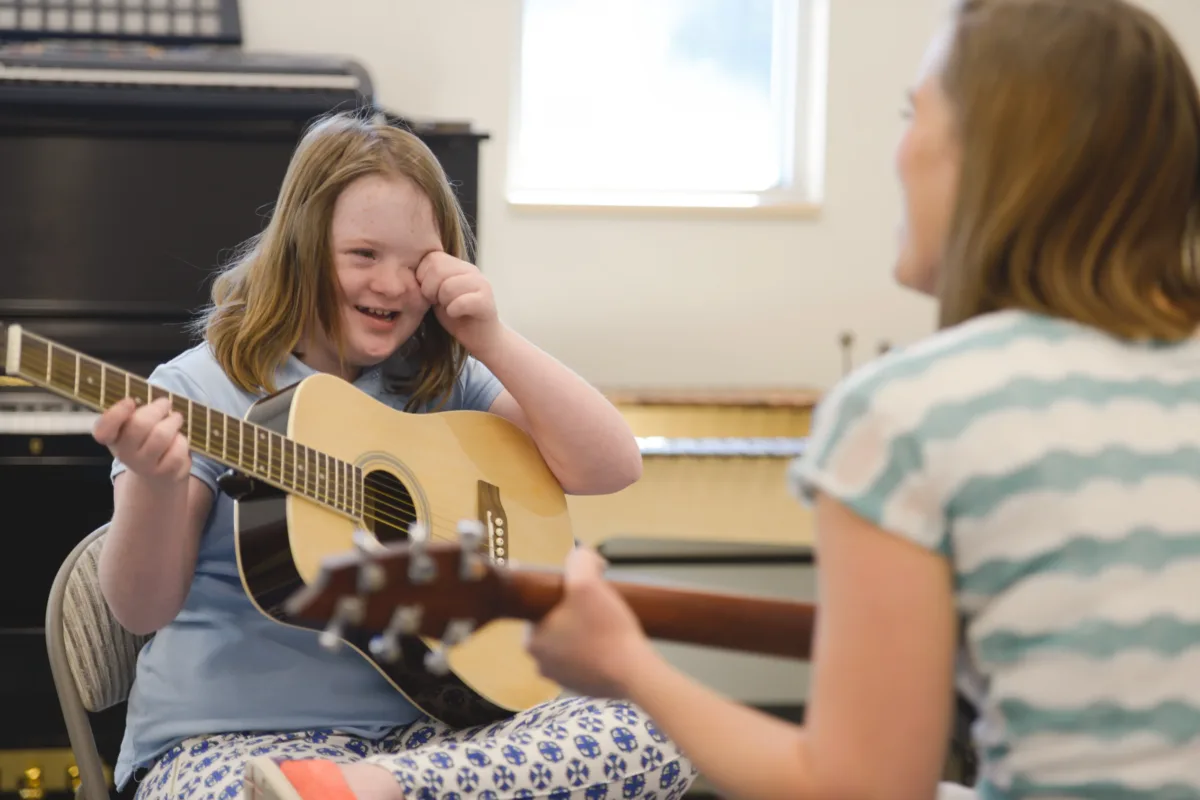Music Therapy: Harmonizing Speech Production for Children with Autism

Music Therapy: Harmonizing Speech Production for Children with Autism
Introduction:
Music has long been recognized for its therapeutic effects on various cognitive, emotional, and physical aspects of human well-being. In recent years, its potential in aiding speech production, especially in children with autism spectrum disorder (ASD), has garnered significant attention. At Jeevaniyam Ayurveda Hospital, we have harnessed the power of music therapy and integrated it with other holistic approaches to provide comprehensive and effective treatment for children facing speech production challenges under the autistic spectrum. In this blog, we will explore how music therapy plays a vital role in stimulating certain brain regions and facilitating speech production in these children.
Understanding Autism and Speech Production Challenges:
Autism spectrum disorder is a complex neurodevelopmental condition that affects communication and social interaction. Among the various challenges faced by children with ASD, speech production difficulties are common. Despite having a fully functional vocal apparatus, they may struggle to communicate effectively due to underlying issues in auditory processing, rhythm, and timing. Music therapy capitalises on these connections to create positive outcomes.
The Neurological Link between Music and Speech:
Studies have shown that listening to music activates multiple regions in the brain, including those responsible for processing language. The rhythmic patterns and melodic structures in music engage areas associated with speech production, such as Broca’s area and the cerebellum. By incorporating specific musical frequencies and Ragas, music therapy can stimulate these regions and promote better speech production.
The Role of Music Therapy in Autism:
Music therapy can be particularly effective in children with autism as it addresses their unique sensory processing challenges. Individuals with ASD may experience auditory hypersensitivity or hyposensitivity, making it difficult to interpret and respond appropriately to sounds. Music therapy helps regulate sensory input, promoting a balanced auditory response and reducing self-talk or vocal stimming, commonly observed in children with autism.
- Rhythmic Entrainment:
Rhythm plays a crucial role in speech production. Music therapy employs rhythmic entertainment, where the child synchronises their movements, gestures, or vocalisations with the beat of the music. This practice enhances motor control and coordination, which are essential for articulating speech sounds accurately.
- Melodic Intonation Therapy (MIT):
MIT is a specific technique used in music therapy to promote speech production. It involves singing or chanting words and phrases with specific intonations. By engaging the melodic aspects of speech, children with autism can gradually transition from nonverbal vocalisations to expressive speech.
- Emotional Regulation:
Emotional regulation is a significant component of speech production. Children with autism often struggle with expressing emotions and understanding others’ feelings. Music therapy provides a safe and structured environment for emotional exploration, fostering emotional expression and empathy, which are crucial for effective communication.
- Social Communication:
Music therapy can be conducted in groups, encouraging social interaction and communication among children with autism. Through group activities, they learn turn-taking, listening skills, and reciprocity – essential elements for successful social communication.
The Holistic Approach at Jeevaniyam Ayurveda Hospital:
At Jeevaniyam Ayurveda Hospital, we have developed a comprehensive program to address speech production challenges in children with autism. Our combined treatment approach includes:
- Music Therapy (Vocals and Instruments):
Our experienced music therapists tailor sessions to each child’s unique needs, using vocals, percussion, and other instruments to enhance auditory processing, rhythm, and vocalisation skills.
- Sensory Integration Therapy:
Sensory integration therapy helps children with autism regulate their sensory responses, making them more receptive to auditory stimuli and improving their ability to process and interpret sounds accurately.
- Ayurveda Treatments:
Ayurveda, the ancient system of medicine, complements the therapeutic process by promoting overall well-being and addressing any underlying health imbalances that may contribute to speech production challenges.
Conclusion:
Music therapy has emerged as a powerful and effective intervention for speech production challenges in children with autism. By stimulating specific brain regions, regulating sensory responses, and fostering emotional and social communication, music therapy offers a holistic approach to support speech development. At Jeevaniyam Ayurveda Hospital, we have integrated music therapy with other evidence-based treatments to provide a nurturing environment where children with autism can thrive and communicate effectively. Through the harmonious blend of music, sensory integration, and Ayurveda, we strive to empower these children to express themselves confidently and connect with the world around them.

